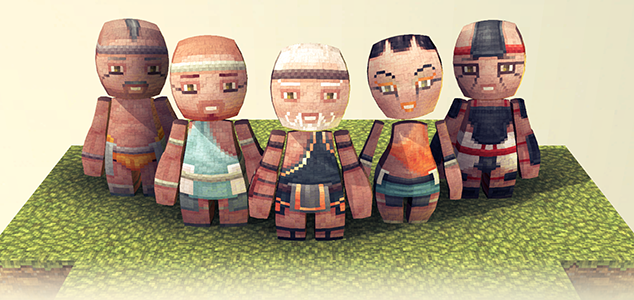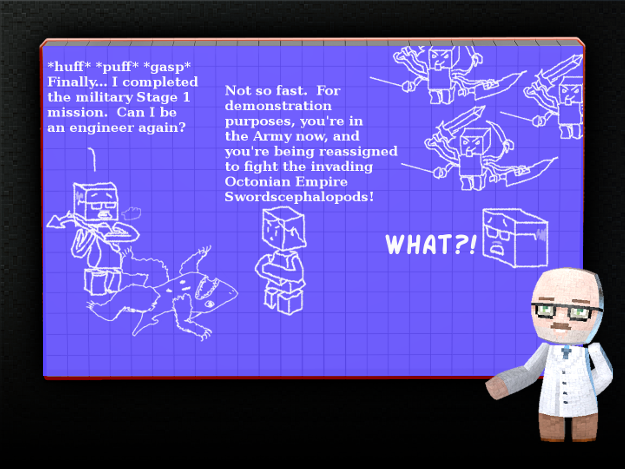
This month we talk about the missions system, and how it relates to the rest of the game. Missions are “entry points” for the player into the needs of the simulated towns people, and every role a player might take has missions associated with them. However, since last month was focused on the non-combat roles, this month, we want to talk about the combat roles, as well, and how they relate to missions.
I’m Just a Buffalo-person Soldier…
Unlike more informal roles that let you pick your own schedule, if you sign up to be a soldier, you’re going to be expected to take on missions on a pretty regular basis. While missions will have variety, until you get promoted several times, you’re pretty much just going to be following orders. (Although you can visit our polls and tell us how strict the “discipline” you expect military roles should have.)
Because the primary duty of a soldier is the defense of the nation that hired them, soldiers are the most sensitive role to the different stages of missions being provided. Soldiers will be expected to drop whatever else they were doing to stop a hostile army from invading their nation. Soldiers can also often become reassigned to wherever the problem happens to be. If your nation is at a time of war, soldiers will be in near-constant action.
Stage 1, 2, or 3 missions are usually tours of duty against some identifiable threat. Stage 4 missions, (when things are pretty peaceful,) however, are likely to be preparatory in nature, building defenses, or just patrolling to make sure nothing sneaks by unnoticed.
Specialists
Not all soldiers have the same duties. The mission system allows players to select jobs that suit their interests, so long as they are in line with the military’s needs. Players can therefore move towards missions that give them a sort of specialized role.
Soldiers that get promoted can eventually go an engineering route, and become responsible for building up defenses around their camps or around towns, letting them build the battlefield they will have to fight upon later. Players can use their creative skills and terrain-changing game mechanics to make the enemy fight on their terms.
Other soldiers might specialize in long-range scouting or special operations alone behind enemy lines. Others still may specialize in the use of military vehicles, operating tanks or warplanes in the thick of the action.
Soldiers At War

In war or in action against a dangerous creature infestation, the stage 1-3 missions, depending on how immediate the threat is, low-ranking soldiers are essentially grunts expected to just follow the orders. The lowest-ranking soldiers probably will be given less leeway or special equipment.
As soldiers rank up, however, they are considered trustworthy enough to be assigned better equipment (or vehicles,) become responsible for leadership over subordinate soldiers, and eventually can become a general, leading the whole of the military forces. (This takes the form of a “RTS mode” that will be covered later.)
Not all Stage 1-3 missions are wartime, however – in real life, military units are called in to respond to floods or earthquakes to help provide relief aid. Catastrophic Events can provide challenges that would call in soldiers to help protect the town in danger, even from non-military threats.
Soldiers At Peace
Your early, low-rank stage 4 missions would include the likes of guard duty or patrols. They have little by way of alternate options. As they are promoted, new missions become available. Higher-ranking player soldiers might lead the patrol, or, at higher ranks, determine where the patrols go (and how close backup will be) rather than follow the leader or go alone. Players might undergo training drills to rank up their combat, survival, or communication skills. They may also work on building defensive structures, or perform other specialty-related tasks, like keeping track of dangerous creature populations in the fringes of the nation’s borders, or trying to customize and upgrade their vehicles.
As players rank up, they eventually gain access to the general’s mode, which we will be covering next time.
- Imagine Nations Team
Support the Imagine Nations Crowdfunding Campaign. Earn Backer’s Access and other rewards while helping us build this amazing game.

